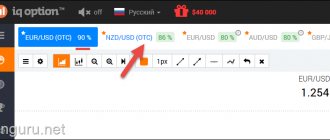Types, characteristics and features of Eurobonds
There are two types of Eurobonds on the market:
- Eurobonds are issued to bearer.
- Euronotes are registered bonds.
Eurobonds are available to all market participants, which is why they are widely used. When talking about “Eurobonds,” they often mean all Eurobonds.
According to repayment terms they are divided into:
- short-term (up to 1 year);
- medium-term (from 1 year to 10 years);
- long-term (more than 10 years).
Bonds have general characteristics:
- par value – the price on the maturity date;
- validity period – the date of redemption by the issuer;
- coupon – income paid to the investor.
Features of Eurobonds:
- circulation is governed by foreign law;
- annual income can be received in rubles;
- exchange rate differences can be profitable.
Profitability and risks
Since subordinated bonds are a riskier asset than “normal” bonds, they offer a more generous coupon income. Here is a list of several income subordinated bonds:
- AbsolutB-S1 – 15% with maturity date 10/22/2021;
- Power 03 – 13.6%;
- VostExB 2 – 23.3%;
- CRBRKMO 25 RUB (Moscow Credit Bank) – 16.4%;
- RSHB 26 – 14.2%;
- Scoop 1B-02 – 8.8% (in dollars!).
And so on. According to BCS, in 2020, the average yield on ruble subords was 13.6%, and on dollar ones – 8.8%.
And here’s another interesting article: What is bond duration in simple words and with examples
The circulation period of subbords is usually longer than ordinary bonds - 5 years is the minimum established by law. The usual period is 5-10 years. Some of the issues are perpetual subordinated bonds - they can be bought on the stock exchange, like a regular bond.
Now let's talk about how subordinated bonds are written off. According to the Basel III standard, in case of violation of capital adequacy standards, subordination must be written off. It happens like this:
- The Central Bank of the Russian Federation initiates an inspection;
- insufficient capital is identified;
- the board of directors and curators from the Central Bank meet and decide which path to take: a complex and costly one - to recapitalize the bank - or a simple one - “forgive ourselves our debts.”
What do you think will be chosen? If the latter (simple) option, then the owners of bank subordination will not be at the end of the line of creditors, but will generally lose any chance of receiving payments. For example, in 2020, 10 bond issues of Otkritie Financial Corporation and Promsvyazbank were written off.
Therefore, quotes for subordinated bonds react very strongly to any news related to the financial condition of the bank. If things go badly for him, the subords will be written off first.
How do Eurobonds work?
When purchasing Eurobonds, investors count on profitability, which prevents savings from depreciating and brings real income.
Government bonds are among the most reliable securities.
Another option for making a profit from investing money in securities is speculation. An investor, purchasing them at a price close to the face value, can sell them at a price exceeding the purchase price.
What are "subboards"?
By priority, bonds are divided into senior and subordinated.
Subboard holders have fewer rights than classic bond holders. According to the law, obligations under them are fulfilled after the claims of third-priority creditors. In the list of applicants for the return of money from a bankrupt bank, holders of “subords” are ahead of only shareholders.
Why should investors buy securities with such a high level of risk? To get a higher yield compared to regular Eurobonds!
Regulation 395-P dated December 28, 2012 allows companies to use subordinated bonds as a tool to increase their own capital. Subbords are issued according to the classic LPN scheme (loan participation certificates).
The maturity of such bonds cannot be less than five years.
Recommendations for private investors – individuals. persons
Purchasing Eurobonds by individuals in Russia does not cause any difficulties, but before choosing bonds, you need to conduct a market analysis or trust specialists.
Recommendation! Pay attention to securities of Russian companies.
Advantages of domestic companies:
- Profitability is higher than that of foreign issuers.
- There is no need to transfer funds for trading and register accounts.
- Availability of information about issuers.
Companies that deserve attention from an investment point of view are Rosneft, Gazprom, Novatek.
In the financial sector, these are Sberbank, Promsvyazbank, Alfa Bank.
How it works in Russia
The crisis of the FC Otkritie bank turned out to be especially large-scale. In July–August 2020, the outflow of funds from it exceeded 600 billion rubles. At that time, there were already 3 issues of the bank’s subordinated Eurobonds in circulation worth more than $1 billion. When considering options for the rehabilitation of FC Otkritie, the Central Bank proposed partial or complete write-off of subordinated bonds, as well as their conversion into shares, if this was provided for by a specific issue. According to current standards, all perpetual securities of a bank are subject to write-off when the level of its capital adequacy drops to 5.125%. If it reaches 2%, the remaining securities are written off. The massive sale of FC Otkrytie sub-boards led to a sharp increase in their profitability. Until November, there was uncertainty about the final decision of the Central Bank, but in the end all 3 issues of Eurobonds were written off.
Until 2013, subordinated bonds were not provided for in Russian legislation; only the concept of a subordinated loan existed. On March 1, 2013, Russia joined the Basel III Agreement, a document regulating supervision in banking. The agreement stipulated standards for the required level of capital adequacy for banks. Following this, the Central Bank of the Russian Federation issued instructions in which it secured the right of banks to issue subordinated bonds to increase their own capital. New provisions were included in the law “On Banks and Banking Activities” in December 2014. Let us list the main features of the circulation of subordination in Russia:
- Are not subject to the Law “On the Securities Market”;
- Only banks can act as issuers;
- The circulation period is at least 5 years;
- Early repayment is not allowed.
In exceptional cases, it is possible to convert them into ordinary shares using a predetermined coefficient. This only happens when there is a threat of bankruptcy of the issuer. Russian banks have already issued subordinated bonds from Sberbank, VTB, Rosselkhozbank, Gazprombank, Alfa-Bank. A significant share of these issues are Eurobonds, since the European debt market has greater capacity and liquidity than the Russian one. You can view the list of bank bonds in circulation on the website rusbonds.ru. To find subords among them, in the filter you need to set the circulation period to more than 5 years and the absence of collateral. As an example of ruble securities, we can mention the bonds of Rosselkhozbank: RSHB 24, 25 and 26 with a par value of 1 thousand rubles, with a floating coupon and maturity date in July 2025. Their yield is currently 8.85% per annum. An example of a high-yield Eurobond is Alfa-Bank-22-2025-euro with a par value of $1000 with a variable coupon of 9.5–9.75% per annum. This release is available to qualified investors only.
I also recommend reading:
What does FAANG mean and is it worth investing in these stocks?
Why is everyone so eager to invest in FAANG?
From the point of view of a portfolio investor, subordinated bonds are a fairly reliable instrument with a yield higher than that of federal loan bonds. Payment for higher profitability - the risk of writing off securities in the event of revocation of the bank’s license. But after a series of reorganizations of systemically important banks, the likelihood of such an event is low. Compared to shares, subordinated securities are a more conservative instrument and, in general, they are subject to less price volatility. Like any bonds, they do not provide the right to participate in a meeting of shareholders, which is not important for small investors; moreover, it is compensated by priority in the queue of payments in the event of bankruptcy of the issuer.
Where can I buy
You can buy Eurobonds through:
- Moscow Exchange. The lower threshold for participation in the market is $1-2 thousand. You get access to trading through a broker.
- Brokerage firms. They accumulate client funds, and when the threshold is reached, they buy Eurobonds on their own behalf. Income is divided among clients in accordance with investments.
- Mutual Funds (Mutual Investment Funds). You need to choose a fund that works with Eurobonds in large volumes (for example, mutual funds of Sberbank, VTB, Alfa Capital, Otkritie). The funds manage the accumulated money in the interests of the client.
How to make money on Eurobonds
In an effort to prevent the depreciation of savings, people are looking for options for profitable investments. An effective way to earn money is to purchase Eurobonds.
By purchasing Eurobonds, an investor can:
- receive bond yields 2-3 times higher than bank interest on deposits;
- use them as collateral;
- receive income when the currency rate increases;
- sell bonds when the market price rises, receiving the difference between the purchase and sale prices.
Find out how to make money on Eurobonds:
Who produces subboards
Typically, subordinated bond issues are issued by companies that need to raise additional funds. You can do this in three ways:
- issue additional shares - but at the same time, capital is “eroded”, and the share of business owners decreases;
- issue ordinary bonds - but this is not always possible, especially if the company already has a high debt load, and it is expensive;
- issue subordinated bonds - in this case there are more advantages than disadvantages for the company, since capital dilution does not occur and subordination is not taken into account when calculating the total debt load.
And here’s another interesting article: Where to invest money in 2019: tips and recommendations
The practice of issuing subordinated loans is carried out by subsidiaries and parent companies. Especially if the subsidiary’s securities are not of particular interest to investors. The subsidiary issues subords, which are completely purchased by the parent company. Then you don’t have to repay them, but that’s a slightly different story.
Technically, any company can issue subboards. However, subordinated bonds are most often issued by banks and other financial companies. The reason lies in the peculiarities of capital accounting for such organizations.
Now I’ll briefly explain everything - this is necessary to understand the mechanism of subordinated obligations.
The bank has assets - these are loans issued to the population and legal entities, and there are liabilities - these are attracted deposits and funds in savings accounts. Simply put, a bank attracts deposits and uses this money to issue loans to borrowers.
If it turns out that there are more people wanting to get loans from a bank than there are people wanting to invest in it, then a “cash gap” occurs, which is called a credit lag: new assets (issued loans) are reflected on the balance sheet immediately, but in fact the bank receives a profit from them after a certain time.
As a result, a situation may arise that the bank does not have enough money to urgently pay off its debts if all depositors run to take their money. As a result, the bank will have to recapitalize – i.e. replenish his capital.
I wrote above that there are three ways to do this - issue shares, bonds or subordination. According to the Basel III standards adopted in our banking system, subordinated loans along with reserves are Tier 2 capital (the basic level is share capital, required reserves and non-distribution, and Tier 1 is bond holders, the state and depositors).
For banks, raising funds into Tier 2 capital is very profitable, as if something happens, they can... be written off. Yes Yes exactly. Next, I will talk about how this mechanism is implemented and how to avoid getting caught on subboards when buying bonds.










